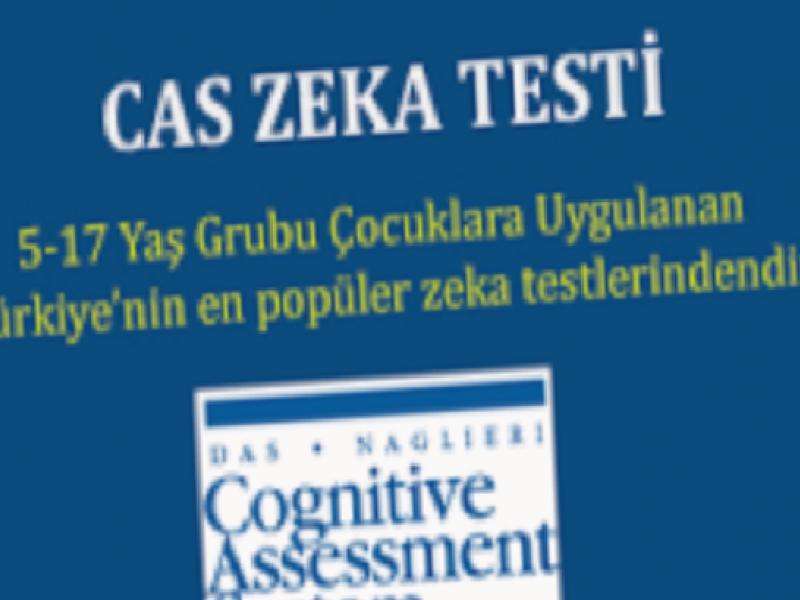CAS test; (Cognitive Assessment System) means Mental Assessment System.
The CAS Test is an intelligence and ability test that evaluates children aged 5-17 years mentally.
CAS is organized in two separate forms as 5 – 7 years old and 8 – 17 years old.
The CAS test can be used to evaluate children with attention deficit and hyperactivity disorder, to evaluate those with learning disabilities, to evaluate those with intellectual disabilities, to evaluate those with traumatic brain injury, to evaluate those with severe emotional disorders, to evaluate gifted children, to identify those with planning problems, and to predict success. . In this sense, the CAS test provides us with concrete and detailed data. It takes an X-ray of the brain and informs about high areas, low areas, inconsistencies and areas that need improvement. The purpose of the test is to evaluate children’s cognitive processes and to determine what level they are in which processes. Since it also provides a neurological evaluation opportunity, it provides an important data source in terms of determining which areas the children who have difficulties in some cognitive functions have difficulties.
According to the results of the test, it is possible to contribute to the development of the child by applying personalized developer intervention programs. In this sense, it is a very valuable test.
The CAS test can only be applied by psychologists and psychological counselors who have completed the CAS test practitioner training given by Istanbul University. Education is not received outside of these two fields.
The CAS Test is also a suitable tool for the assessment of cognitive processes underlying learning disabilities. For example, it can help reveal the successive Cognitive Processing problems associated with decryption in reading. Concurrent and Sequential Cognitive Processing Scores may be related to reading comprehension. Likewise, it can be used to identify Planning difficulties associated with solving mathematical problems.
The CAS test is useful in two ways in determining the probability of a child having an intellectual disability. First, it provides an assessment with little need for the information the child learns later through education. Thus, the child will not fail the tests due to lack of knowledge and his natural performance will be fully reflected in the scores. Secondly, it will help in differential diagnosis as it allows evaluation of many different cognitive processes.
Each of the four PASS scales allows measurement of a wide variety of cognitive processes vulnerable to traumatic brain injury. Organization, impulse control, attention, problem solving and planning pose problems especially in children with traumatic brain injury (Savage & Wollcott, 1994).
The CAS test also provides information that can be helpful in the evaluation of children with severe emotional disorders. These children’s behavioral control, social problems with other people, and difficulties with impulsivity may be associated with low scores on the CAS test Planning scale.
All four scales of the CAS allow the assessment of cognitive processes necessary for the assessment of superiority. CAS allows for a comprehensive measurement of cognitive processing and can identify individuals who excel in cognitive areas that cannot be measured by traditional intelligence tests.
CAS provides a systematic and structured method for assessing the child’s level of planning and organization (Weyandt & Willis, 1994). Planning subtests are sensitive to the child’s organization of activities, use of appropriate strategies, impulsivity, behavior regulation and evaluation.
CAS aims to predict the academic success of children. Each of the four PASS scales is associated with success and failure in specific areas of academic performance. The Full Scale Standard Score is the best predictor of baseline achievement.

